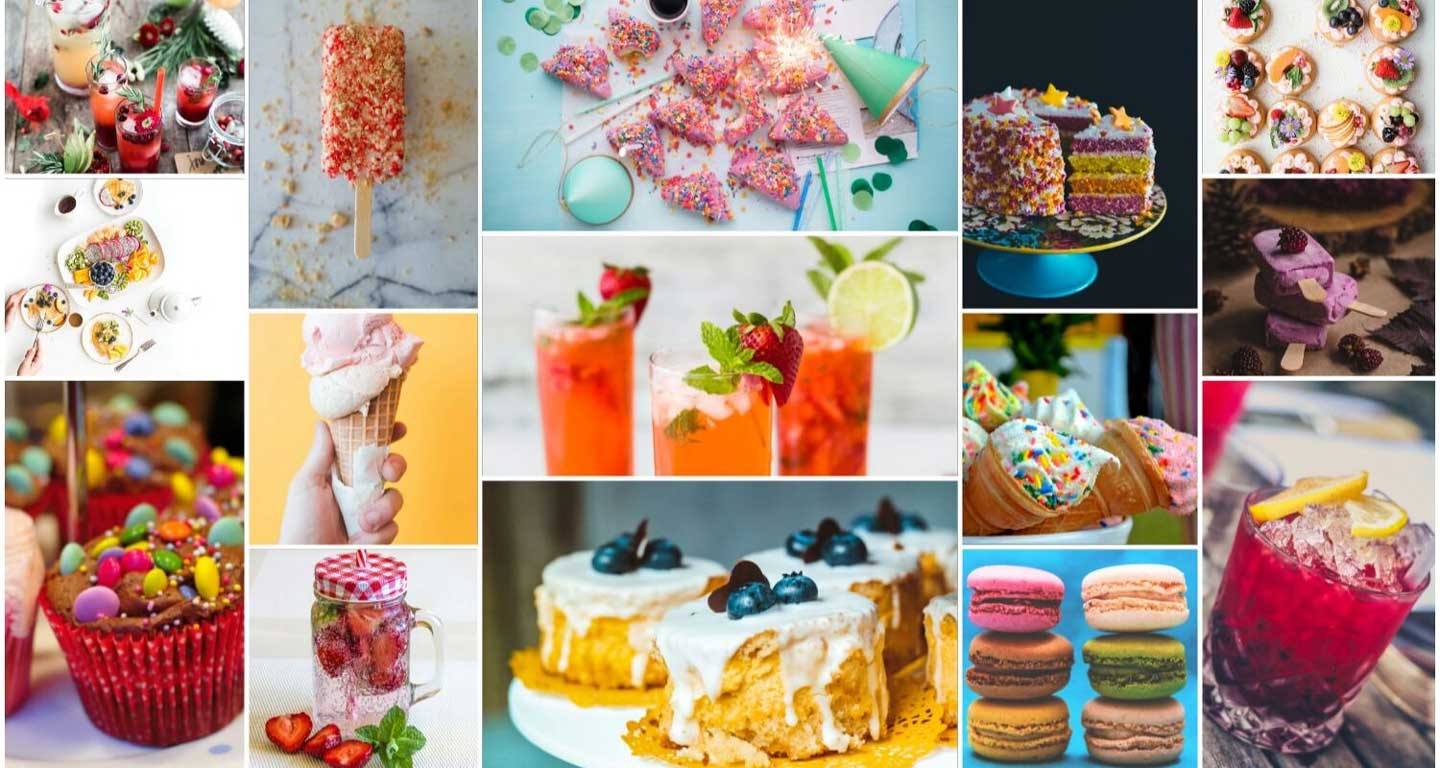Application
Dynemic is engaged in manufacturing of Food Colours and Lake Colours which are majorly used in Soft drinks, Cosmetics, Pharmaceutical Industries, Confectionery, Processed Food Products, Dairy Products, Bakery Products, Alcoholic Drinks etc. Also the Company is engaged in manufacturing of Dye Intermediates which are used in production of various Dyestuff and Pigment industry.
Synthetic food colours are used to enhance the original colours associated with a given product. Also due to light, air, temperature and moisture many time product's colour fade or disappear, so colour are added to give a colourful identity to the colourless or dull looking foods. Also colours are used to provide a colourful appearance to "fun foods."
Confectionery
Almost all confectionery has added colourants in them.
Most common ones are candies, jellies, coated candies and
chocolates.
- Jellied candy
- Hard candy
- Pan-coated candy
- Chewing gum
- Candy wafers

Beverages
Represent one of the top market segments for the use of colours.
- Carbonated Drinks
- Soft Drinks
- Dry-mix
- Juice
- Sports beverages

Processed Food
Colouring adds interest and appeal to the processed food.
- Meat
- Seasonings
- Margarine
- Processed Cheese
- Jams and jellies
- Fruit flavored or gelatins
- Pudding and pie filling mixes

Bakery Products
The consumer appeal of baked goods and cereals can be
greatly enhanced through the use of colours.
- Cookies
- Bread
- Cakes
- Biscuits
- Cereals
- Pastries

Dairy Products
Most of the dairy products like oil based coatings, retorted milk
products, sauces, wax coating for cheese and cheese are coated
with lakes rather than dyes.
- Processed cheese
- Yogurts
- Ice cream
- Margarine
- Cereals
- Milk

Pet Foods
Lakes are preferred because of the presence of proteins as they
are more stable colourants in semi-moist foods. Still, water soluble
dyes are quite popular for their ease of use.

Pharmaceuticals
- Coated and Compressed Tablets
- Wet Granulations
- Pharmaceutical Suspension
- Capsules
- Ointments

Cosmetic & Personal Care Products
- Lotions Creams
- Lipsticks
- Eyeliners & Eye Shadows
- Toothpaste
- Deodorants
- Liquid Soap
- Shampoos
- Bath Soap
- Hair Oi
- After Shave
- Skin Creams
- Tattoo

